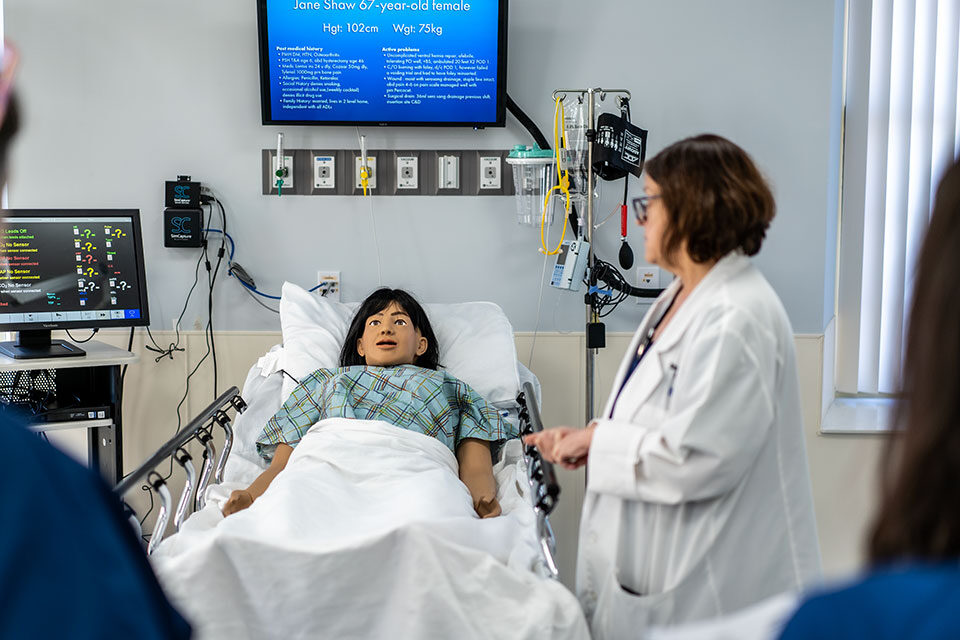Salve Regina’s graduate nursing program partners with PC Institute for Medical Education

Salve Regina has partnered with PC Institute for Medical Education (PCI), New England’s largest multi-use medical training facility, to expand experiential learning opportunities for students enrolled in the master’s degree in nursing and post-graduate certificate programs.
Through the partnership, Salve Regina’s nursing faculty and students will work alongside PCI professionals to access a wide range of simulation-based equipment and technology that mimic what health care professionals encounter daily in the field. PCI’s 20,000-square-foot facility in Fall River, Massachusetts, features 24 bioskills stations, multiple lab spaces, high-fidelity simulation suites, configurable meeting rooms and advanced audio-visual technologies.
The partnership is PCI’s first with a university. It supports its mission to deliver high-quality, experiential learning using state-of-the-art techniques and technologies regionally, nationally and internationally, according to Dr. Charles Pozner, chief medical officer and director of simulation for PCI.
“The relationship between Salve Regina University’s nursing program and PCI brings together two of the area’s leaders in health care education,” Pozner said. “Salve Regina will leverage PCI’s modern simulation-based technologies and our world-class simulation to enhance their nursing education.”
The medical simulation at PCI uses high-fidelity computerized mannequins placed into realistic clinical settings to present clinical cases explicitly developed for participants to meet their individual learning needs. Salve Regina’s nursing faculty will observe students from a control room and provide meaningful instruction based on their actions. Beginning in 2023, Salve Regina’s nursing program will conduct up to four of its nursing colloquiums, also called residencies, at PCI annually.
“In a rapidly changing health care environment, the teaching of clinicians has become more dependent on simulation-based activities,” Pozner said. “This safe, reproducible and active learning environment supports modern educational techniques. The fidelity of the environment results in participants suspending the disbelief that they are in a simulated environment, and they begin to function as if caring for actual patients.”
Dr. Sharon Stager, Salve Regina’s graduate nursing program director, said PCI’s innovative simulation opportunities will help students achieve competencies and the skills needed to provide ethical patient care across the lifespan. The University’s goal is to empower future nursing leaders to advocate for the well-being of individuals, families and the communities in which they live.
Founded by physicians, PCI provides cadaveric, scenario-based and skills-based learning opportunities for students, trainees and practicing clinicians from all disciplines – including physicians, nurses, EMS and various allied health professions. PCI also provides inter-professional education supporting the development of communication skills that will improve the care teams provide in all clinical settings. It embodies a tradition of innovative approaches to healthcare and a commitment to advancing professional education and research for orthopedics, neurosurgery and many other surgical specialties.

